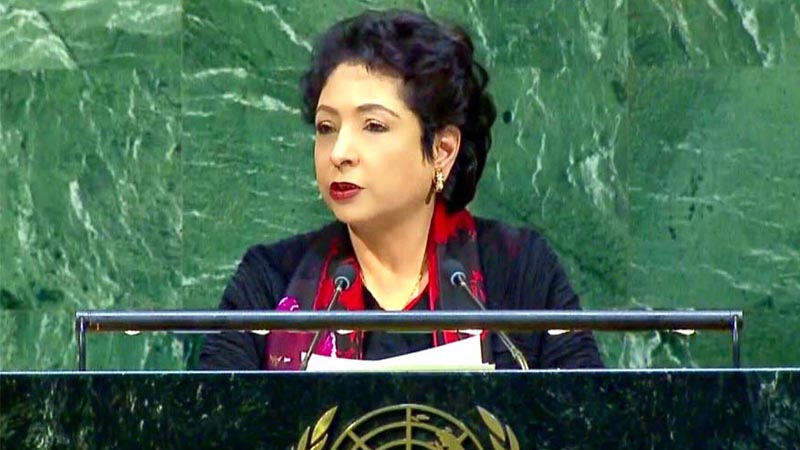
NEW YORK: Pakistan’s permanent representative to the United Nations (UN) Dr Maleeha Lodhi on Saturday said that Pakistan has achieved gains in countering terrorism.
Lodhi while addressing the UN General Assembly (UNGA) high-level conference of heads of counter-terrorism agencies, said that international cooperation was the need of the hour to eliminate the menace of terrorism all around the world.
Pakistan’s Ambassador to UN asserted that the gains had come at a high cost of precious lives and financial losses but it did not break Pakistan’s resolve to eliminate terrorism.
Lodhi informed the heads that the largest anti-terrorism operation was carried out by the Pakistani army, deploying over 200,000 personnel. She added that Pakistan’s counter terrorism strategy has been more than just the involvement of military means.
Lodhi said that “No country can fight the menace of terrorism alone”.
The Pakistani envoy maintained the view that fighting terrorism could only be done by strengthening of regional and international cooperation, adding that Pakistan took the lead in South Asia by organizing Islamabad International Counter-Terrorism Forum in April.
Lodhi asserted that extremism and terrorism were the two biggest challenges not only to national borders but also to the global security, that were feeding off instability in various parts of the world.
She added that non-state actors posed a threat to the global security which can not be contained or tackled by any one country.
Lodhi added that easy access of information through technology has helped terrorists to make transnational connections, becoming more sophisticated in their operations.
She said “Acting borderless force terrorist groups freely operate in the cyber domain and disseminate their toxic message to promote online recruitment, raise funds and even plan and launch attacks”.
Lohdi stressed on the need to have a secure and sustainable information and coordination mechanism in the field of cyberspace to prevent its abuse.
Pakistani envoy added “The challenges we face today will continue to evolve in new and unpredictable ways. We need to work together and in unison on our capacity to evolve and adapt to meet them”.